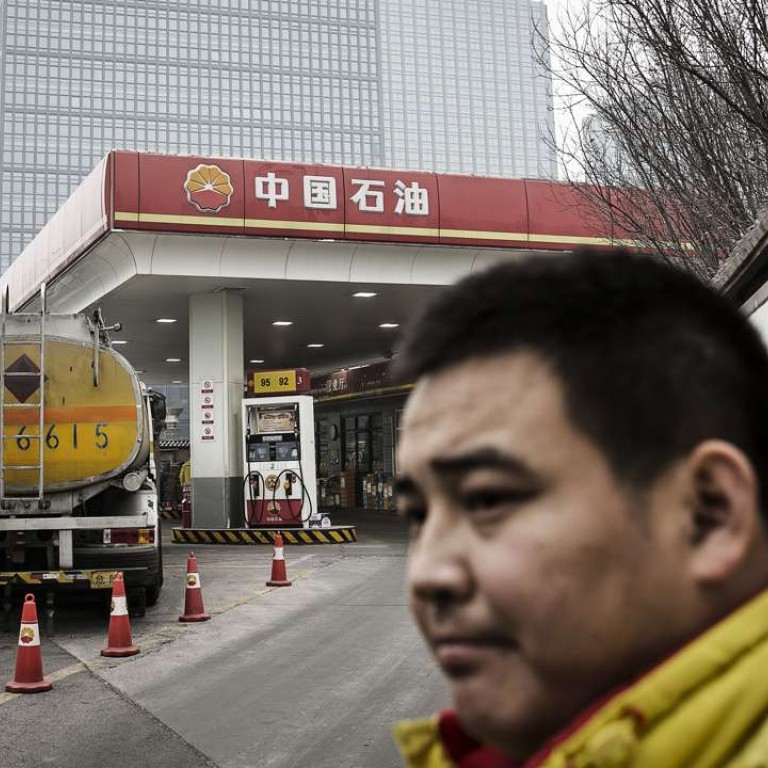
China’s state-assets chief to unveil grand plans for oil industry
Reforms may eat into dominance wielded by the sector’s big three players, ex-Sinopec boss says
Beijing has grand reform plans for the petroleum sector that may mean eroding the dominance of the three state-owned oil giants to help clean up the industry.
Fu Chengyu, former chairman of China Petroleum & Chemical (Sinopec), said on Friday the state-assets watchdog would unveil details of the reform on Saturday, adding the three oil majors’ cosy oligopoly was a stumbling block to the industry’s growth.
Each of the three oil companies represents no less than a complete chain of oil businesses
“Each of the three oil companies represents no less than a complete chain of oil businesses,” Fu said on the sidelines of the Chinese People’s Political Consultative Conference. “Based on international practice, the situation could hinder growth.”
READ MORE: Reform buzzword in China’s oil and gas industry in 2016
PetroChina, Sinopec and China National Offshore Oil Corporation (CNOOC) dominate the country’s oil and petroleum industry and have been targeted by anti-corruption inspectors.
The sector was believed to be riddled with graft due to the influence of former security tsar Zhou Yongkang.

Fu was chairman of CNOOC before being appointed Sinopec’s chief in early 2011.
Xiao Yaqing, who was appointed chairman of the State-owned Assets Supervision and Administration Commission last month, is expected to outline the reform plans on Saturday.
The leadership’s crackdown on the state-owned oil giants resulted in the downfall of several of Zhou’s key allies over wrongdoings during their time as top oil executives.
The leadership has been striving to shake up the dominance of the big three, inviting private investors into the industry to improve corporate governance.
Observers expect the reforms to include large-scale opening up of upstream exploration and production to non-state firms, and a spin-off of midstream pipeline assets into one or more independent entities.
More details also emerged about Chinese President Xi Jinping’s push for “new ties between politics and businesses”.
READ MORE: Mind your behaviour! Xi tells wealthy businessmen to ‘set a good example’ amid criticism of China’s nouveau riche
Zhejiang Transfar Group chairman Xu Guanju, who was at a private sector panel discussion with Xi last week, said the president suggested they should lobby authorities for policy support and to lodge complaints about rules.
Xi sought to reassure the business community that the leadership still had a positive stance on the private sector despite fears about the anti-corruption campaign. “President Xi encouraged us to be strict with ourselves, be honest men and do business neatly,” Xu said.

